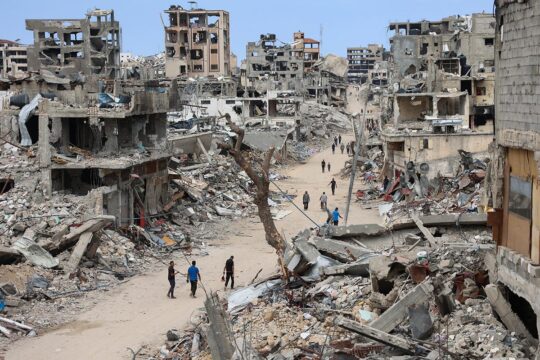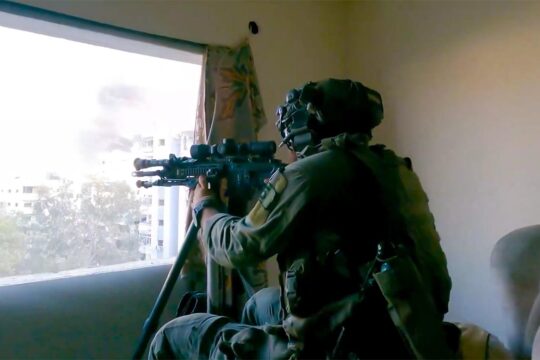New Zealand, Malaysia, Senegal and Venezuela requested a vote after Egypt, under pressure from US President-elect Donald Trump, sought to delay the measure.
A vote has been requested for 3 pm (2000 GMT).
French Ambassador Francois Delattre told reporters that "most likely, we will have a vote soon" while Russian envoy Vitaly Churkin said "they are going to put it to a vote."
The measure drafted by the Palestinians and first presented by Egypt on behalf of the Arab Group had unleashed a frenzy of lobbying by Israel to block it.
Egypt had circulated the measure to the council late Wednesday and requested a vote the following day, but backtracked just hours before that meeting.
The Egyptian presidency confirmed that the delay was decided during a phone call between President Abdel Fattah al-Sisi and Trump.
Israel had asked Trump to intervene after learning that Washington, in a reversal of its policy under President Barack Obama, would not veto the resolution, an Israeli official said.
"This resolution is a Palestinian initiative which is intended to harm Israel," said Israeli Ambassador Danny Danon after prospects for a vote were revived.
"We call on the United States to stand by us and we expect our greatest ally to continue with its long-standing policy and to veto this resolution."
- Trump calls Sisi -
The Egyptian turnaround surprised many but follows repeated expressions of admiration for Trump from Sisi, a former military chief who overthrew his Islamist predecessor in 2013 leading Obama to temporarily suspend military aid.
A Egyptian statement said "the two leaders agreed on the importance of giving the new administration a chance to deal comprehensively with all the aspects of the Palestinian cause to achieve a comprehensive settlement."
Israeli Prime Minister Benjamin Netanyahu urged Washington to block the draft, pointing to years of US willingness "to stand up in the UN and veto anti-Israel resolutions."
The French ambassador stressed that the draft resolution "does not exclusively focus on settlements. It also condemns the violence and terrorism. It also calls to prevent all incitement from the Palestinian side so this is a balanced text."
"The key goal that we have here is to preserve and reaffirm the two state-solution," said Delattre.
Obama's administration has expressed mounting anger over the continued expansion of Jewish settlements in the occupied Palestinian West Bank, and speculation has grown that he could launch another initiative before leaving office next month.
"After becoming aware that the (US) would not veto the anti-Israel resolution, Israeli officials reached out to Trump's transition team to ask for the president-elect's help to avert the resolution," an Israeli official said on condition of anonymity.
Israeli settlements are seen as a major stumbling block to peace efforts, as they are built on land the Palestinians see as part of their future state.
- Cease all settlements -
The United Nations maintains that settlements are illegal, but UN officials have reported a surge in construction over the past months.
The draft resolution demands that "Israel immediately and completely cease all settlement activities in the occupied Palestinian territory, including East Jerusalem."
It states that Israeli settlements have "no legal validity" and are "dangerously imperiling the viability of the two-state solution" that would see an independent Palestine co-exist alongside Israel.
The Middle East peace process has been comatose since a US initiative to re-launch peace talks collapsed in April 2014.
France has announced plans to host an international conference on January 15 to try to restart talks based on the two-state solution.
Trump, who campaigned on a promise to recognize Jerusalem as Israel's capital, had bluntly said Washington should use its veto to block the resolution.
"The resolution being considered at the United Nations Security Council regarding Israel should be vetoed," he said in a statement.
"As the United States has long maintained, peace between the Israelis and the Palestinians will only come through direct negotiations between the parties, and not through the imposition of terms by the United Nations."
Trump has chosen as ambassador to Israel the hardliner David Friedman, who has said Washington will not pressure Israel to curtail settlement building in the occupied West Bank.


